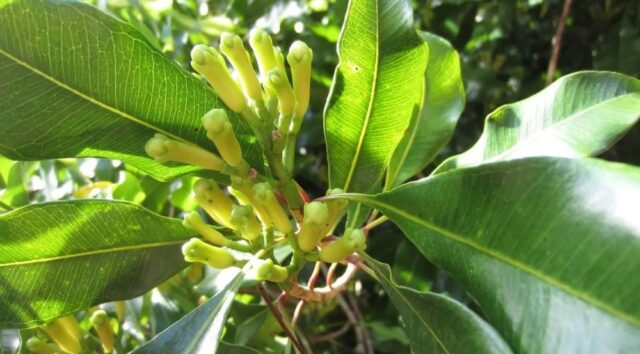
(3 Minutes Read)
The Government authorities believe that focused attention to clove cultivation can not only close the gap with Madagascar in production but also help the country earn more from exports
Clove cultivation in Tanzania is set to change the fortunes of the farmers. Morogoro region, which is situated in the eastern part of Tanzania, is ideally suited for clove cultivation. Experts believe that it can potentially increase the farmers’ income and act as an enabler for the socio-economic growth of the region. Now, Tanzania ranks well below the top producer of the continent Madagascar is clove production. The Government authorities believe that focused attention to clove cultivation can not only close the gap with Madagascar in production but also help the country earn more from exports.
Since their introduction, cloves have attracted considerable interest among Morogoro farmers. Avocado also can be cultivated along the farming land suitable for clove cultivation, helping the farmers to earn double their income. Last year, in collaboration with the Southern Agricultural Growth Corridor of Tanzania (SAGOT), the Office of the Regional Commissioner organized a study tour for 50 farmers to Zanzibar. They received training on all stages of clove cultivation.
Zanzibar region is well-known for clove cultivation, where there are large tracts of land where clove cultivation is undertaken. The districts identified as suitable and fertile for cloves cultivation in the Morogoro Region include Gairo, Mvomero, and Kilombero, which boast favourable climatic conditions for the crop.
SAGCOT, in collaboration with partners such as IUCN, AWF, WWF, and development partners, has been working closely with farmers to increase clove production in Morogoro Region. Over 350,000 clove seedlings have been produced for Morogoro District alone, with plans to distribute them to 5,000 smallholder farmers for planting. In Gairo District, SAGOT and partner organizations have identified 500 farmers and 40 of them have already received training on best practices for clove cultivation.
Read Also:
https://trendsnafrica.com/tanzania-to-hold-timexpo-2024-in-september/
https://trendsnafrica.com/philip-morris-to-re-start-buying-tobacco-from-tanzania/
Madagascar is the largest producer of clove in Africa, accounting for 75% of the total production of the continent, followed by Tanzania as a distant second and Comoros, the third. Madagascar also ranks first as the largest exporter of cloves in the world, accounting for 46%, (USD 272 million), followed by Singapore (16%), Indonesia, contributing 9.6% (USD 56 million), UAE, 7.63% (USD 45 million, and Tanzania 712% (USD 42 million).









